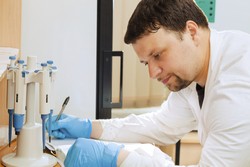Smarterweb-based tools to better share, reuse and enhance research data
The World Wide Web enables the instant sharing and much wider distribution of research results. However, current web publishing still resembles traditional print production processes and can fail to deliver the information that the scientific community needs in an easy-to-use format. With EU funding, the SCILINK (Semiautomatic methods for the creation and maintenance of links between scientific resource aggregations on the Web) project reassessed how researchers publish their results. The main research activity centred on the development of strategies to maintain links that synchronise web resources based on current web standards. This resulted in a web-based resource synchronisation framework called ResourceSync that builds on the Sitemaps protocol and enables third-party systems to remain synchronised with a server's changing resources. In 2014, ResourceSync was approved as a standard by the National Information Standards Organization. The synchronisation framework is currently being implemented for arXiv(opens in new window), a highly automated, open access archive and distribution server for over a million research articles that is maintained and operated by the Cornell University Library in the United States. Project partners examined new forms of open, digital annotations in scholarly communication. This led to the development of a World Wide Web Consortium Open Annotation specification and Maphub, an open source web application for annotating and georeferencing the digitised high-resolution historic maps. They also studied and tested a novel tagging method called semantic tagging. The SCILINK team also contributed to the EUROPEANA project, an open-source digital archive of European culture. It developed a pilot system that tested strategies to link open metadata on the 2.4 million texts, images and audio-video material in its archive. All metadata is available under a Creative Commons license. SCILINK enabled radically different ways to use and present research data. European citizens stand to benefit from these new ways to gain and expand knowledge.



